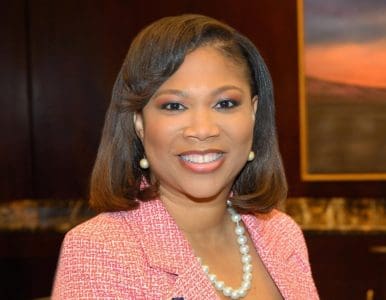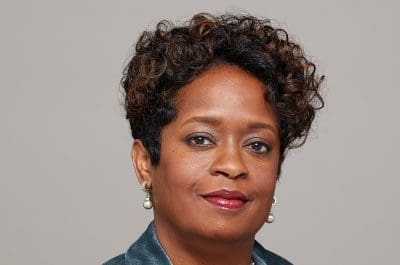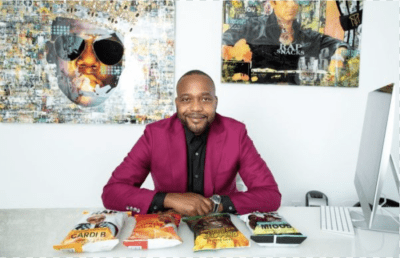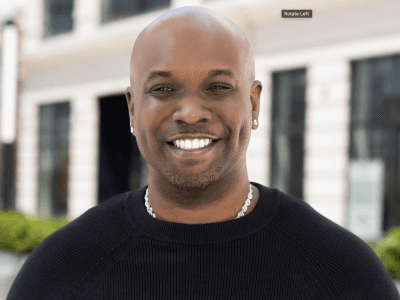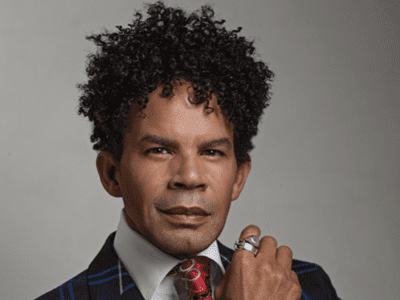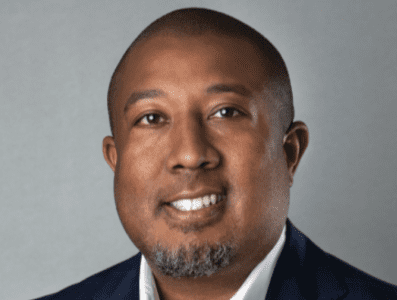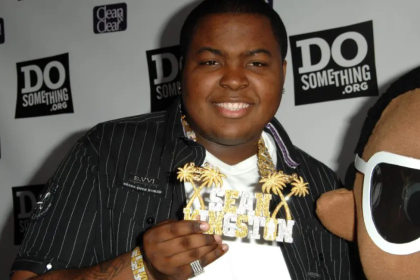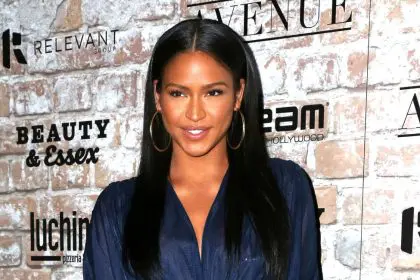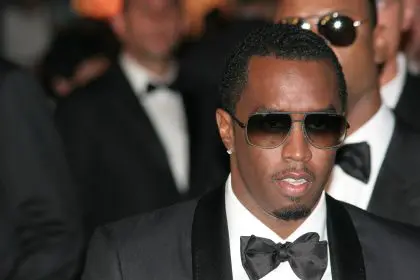Lisa Hamilton is a nonprofit executive and attorney with over 25 years of experience in philanthropy, community, and public policy. Hamilton also holds the title of director for the Federal Reserve Bank of Richmond. With her organization, The Annie E. Casey Foundation, she dedicates her life to building a bright future for children, youth, families, and communities in the United States.
On May 3, 2023, the CEO is set to be honored with the “Excellence in Leadership” award during the Inroads Benefit Gala., located in Washington D.C.
Hamilton opened up about her career journey, how Inroads develops their youth into leaders, and the importance of having mentors.
Before you were a CEO and had this experience with Inroads, how did you get involved with the organization, how did the organization motivate you and what have you learned that you still utilize today?
My experience with Inroads dates a while back now, probably 30-plus years, but I heard about Inroads from a news article back when I was in high school. I think my mom told me about it. She knew that I wanted to major in business and she said, “They’re starting up this new organization in Atlanta designed to get minority students opportunities in corporate America and it looks like something you ought to check out.” I had other friends who had maybe just entered and it seemed like a great thing to do. I joined Inroads in 1987 and I started the summer before I went to college at the University of Virginia. When I tell you it was life-changing, it was life-changing in every way.
I got to work at Digital Equipment Corporation in Atlanta. It was an early tech company. Who knew where the tech field was going? But there I was as an 18-year-old getting to work in the tech industry. I started in the sales area. The next summer I got to work in finance and accounting. By then I decided I wanted to go to law school and the company let me intern in the legal department. I got incredible experience at a major corporation and I had great mentors at the company. When I was in Inroads we used to spend every Saturday doing professional development led by business leaders all over the city.
I met amazing mentors and professionals that taught me everything from business etiquette to how to negotiate for your entry salary and to know different career opportunities that existed. Because we were together every Saturday, I made lots of friends through Inroads. These were people I spent every Saturday with for four years. So, I just think Inroads was a tremendous platform for me to build my knowledge of what was possible in corporate America, to meet mentors in the field, and to meet other young people that I networked with, and are still friends 30 years later. I use those relationships and the skills I built for more than 30 years.
When you first had this internship, what did you take away from it that you were able to utilize?
I learned so much about what it meant to be a professional in corporate America, like listening to really understand what my manager is asking me to do. How do I deliver a quality work product? How do I take constructive feedback and not get frustrated by that, but learn how to rewrite whatever I’d written or re-do the project so that I could meet the needs of my boss? How do I learn about this industry? How do I read up on the accomplishments so that I can figure out how I fit into it? Just the generals you need to know how to communicate in corporate America and how to conduct yourself in meetings. If you move around in your company, how do you navigate that? How do you go to someone and say, “Hey, I think I want to go to law school, would you be open to me working in your department next summer?” How to advocate for yourself. All of those things are skills any young person needs and having that big company name on my resume opened tremendous doors for me later on. I have participated in all kinds of programs to try to diversify fields, and Inroads was my very first step and continues to open doors because people knew if I had been through Inroads, I was a professional. I knew what it meant to work in these spaces, and that I had good credentials.
What would be the title of your speech for a group of Fortune 500 CEOs on the value of Inroads, and the difference that it will make in a young person’s life?
I would call my speech “Access the Best.” I think Inroads gives any employer access to the very best talent early in their career. There is a war for talent out here and every company is trying to get the very best people they can to advance their mission and Inroads, because of how they vet the young people and how they support them. They provide these wrap-around services that really complement any kind of professional development. A company is going to want to provide that early career person. When you have an Inroads intern you have the opportunity to be connected to the very best talent early in their careers so that when they leave college, you’ve got access to them. Then they already have two to four years of knowledge about your business and about how your business operates; that’s invaluable. Look at how much companies have to invest in recruiting talent, and training their talent at Inroads is an incredible partner to help you do that to source the best talent, grow the best talent, and help give you someone who’s ready to hit the ground running from day one.
Is this a pipeline program to actual equity inside of corporate America?
I think it is 100 percent. There are so many talented young people just looking for an opportunity to enter these companies. There’s no reason at all to say you can’t find diverse talent in this country because Inroads is right there. Selecting the very best young people, you’re not going to find young people with better credentials, better grades, and ready to go even further in your company.
As a CEO, how did you figure out your management and corporate style?
I ended up going to law school after Inroads and went into corporate America. I worked at UPS as an executive for 14 years and in a variety of different functions. I like to have a diverse background, never just one thing. I worked as a tax lawyer, I worked as a lobbyist on Capitol Hill, I ran public relations for the whole company, and I ran the corporate foundation for UPS. My experiences at Digital, I’m someone who likes to try out different parts of a company. I started learning how to do that at Digital when I was 18 years old. I started learning how to build relationships and network within a company so that if an opening comes up, you’ve got a relationship that you can say, “Hey, I think I’m interested in your function. Would you be open to letting me transfer here?” I learned a lot about the financing side of the business. I use those finance and technical skills all the time in running a nonprofit. I learned great communication skills when you’re presenting in a sales environment. Very much what you’re doing in those other roles I had in corporate America and leaving this foundation. I just built all these amazing foundational skills in finance, budgeting, communication, understanding sales, and then legal and advocacy that I have continued to use every day for the rest of my career.
What would you share with the young sisters who are wondering how to find a mentor?
First, I think I have always been open to all kinds of mentors, you never know what the right mentor or sponsor is going to look like. I always found someone who was in the role I wanted, who’s in the next step up that could tell me how to get there. Who do I need to know? What kind of record do I need of excellence in the job that I have that’s going to help me get to the next level? I’m someone who’s just asked people to be a mentor. In fact, the person who has been my mentor the longest is a woman. I just called her out of the blue. She had graduated from my law school. I said, “Hey, you’re a partner at a big law firm.” She was actually the first Black woman to be a partner at a law firm in Atlanta, and I said, “Hey, we went to the same law school, I would really like to have lunch with you.” She might have said no, but she said yes. She has continued to be my friend and mentor. She’s also my daughter’s godmother, 30 years later.
I say take the risk, if you see somebody doing something that you want to do, don’t be afraid to ask them if they would have coffee with you or have lunch with you. It might only be that one hour or two hours, but there’s a lot you could gain from that. It could turn out to be a lifetime relationship. I don’t view mentoring as just one person. I like to have a whole kitchen cabinet of people and a whole kitchen table of people who can help me in different ways. I probably, assembled at any one time, three to five people that I could talk to and bounce questions off of. I think some young people also think it’s just one person they’re looking for. You’re actually looking for a range of people who can help you both inside your organization and out. I’ll tell you, one of the most effective things that happened for me was having mentors outside of the company because there were times when people inside the company happened to run into someone who was mentoring me outside the company. They were able to put in a good word for me. Those leaders in the company thought ‘who is this woman? She’s not just in this company, but outside as well?’ It gave me an apparent bigger scope of influence than I probably had in my mid-20s. I say if you see somebody one level up to levels up who are doing things that you want to do, ask them. All they can do is say no, but many times they say yes because they want to see other young people come along.
How would you describe your leadership style?
As a coach, the thing I like most about being a leader is seeing other people thrive and shine and reach their goals. I don’t try to micromanage the people who work with me, because what’s the point of having talented people if you’re going to try to do their job for them? I like to have the best talent on staff and I like to problem-solve with them. I really like to try to coach them to excellence, be a good business partner to them, and make the relationship not just about me, but how they are as a team as well. If you aren’t partnering with your peers in an effective way, it doesn’t make as much of a difference. If you’re partnering with me, I need to make sure you’re a great team player. So to me, that’s about coaching, how do I make them the best individual player but also how do I make them effective as a part of a team?
What are three ways that you’re able to forecast and what resources help you stay sharp?
I read a lot of newspapers and a lot of news. I work in Full Entropy and we have news clips every day of what’s going on in our area, whether it’s child welfare, juvenile justice reform, or what’s happening in the policy space around low-income kids and families. Every day I read those news clips so that I know, what are the latest things happening across the country as it relates to our work. I also think that people can give a lot of inspiration. Outside of business context, I read a lot of fiction because it inspires me, it helps me understand humanity better. I think the more that I can connect to the caring, empathetic human part of myself, the better leader I am. I have the privilege of serving on the Federal Reserve Board of Richmond, so I get lots of economic information all the time. That also helps me as a business person understand what’s going on in the world, such as industry-specific information, general economic information, and then just human interest. Who are we as people? I think that’s so important to have high emotional intelligence no matter what you do.
What is it like working as the director for the Federal Reserve Bank of Richmond and what has it given you to use as a CEO?
It’s an extraordinary opportunity. I got connected to the president of the Federal Reserve Bank of Richmond. There are 12 Federal Reserve banks around the country, and each of them has a board of nine. He started talking to me about what was going on with low-income kids and families during the pandemic. I lead one of the largest foundations in the country focused on children and families and we all knew that the pandemic was wreaking havoc on the lives of particularly working people. He wanted to talk to me to understand what was I hearing. What do people need, as well as what and how were nonprofits responding to these issues? Over the course of a number of months, as we got to know each other, and he got to hear the insight that my organization had, he invited me to join the board. I view it as one of the most important things I get to do, which is to weigh in on national monetary policy, with the lens of how it impacts low-income kids and families. If we don’t have an economy that works for everybody, we don’t have the right economic policies. I’m not trying to figure things out for those who are doing well, and making lots of money, I’m trying to make sure we have an economy that is going to benefit everyone. The issues we work on are inflation and unemployment. As we have all seen inflation grow during the last number of years and unemployment numbers go to record lows, it has been quite a journey to understand what the data is telling us, and how we need to make decisions about interest rates to accomplish low unemployment and low inflation. All of which is a challenge. You can imagine the national data and the information we get that helps us make those decisions is invaluable as a business leader. I really do feel like it gives me a pulse of what’s going on in the economy, I get to hear from other business leaders in their industries about, how things are going in their world. I really feel like it’s one of the most important things I can do: bring the interests of real people and real families into our monetary policy decisions.
How important is equity in this society?
Equity is at the core of my personal mission, and my organization’s mission to ensure that we have communities, systems, and policies that are equitable. We obviously live in quite an equitable society at this point and the work that I do at the foundation gives me an opportunity to not just help people beat the odds, but to change the odds. Every person in this country has an opportunity. I do all of the work that I do with an equity lens. What do we need to do to make sure that the choices we’re making, the opportunities that we’re creating, and the policies we’re passing aren’t disadvantaging many people in our country? The data is very clear that this is an increasingly diverse country, half the children in this country are children of color. That means our communities are going to be increasingly diverse and our workforce is going to be increasingly diverse. If we have policies that leave these kids and families on the sidelines, we aren’t going to be able to benefit from their talent. These families aren’t going to be able to support themselves. That’s a failing economic policy of a failing American policy if we aren’t inclusive. I spend every day trying to make sure that we open the doors of opportunity to everyone.
If you gave a speech at Spelman and you were talking about skill set acquisition for young women, how would you ask them to aim as high as they possibly could?
Education is the foundation of everything and those young women are on a tremendous trajectory forward in their lives with an extraordinary education. I will tell them the skills they get are such an important ingredient in the trajectory of their life and to not just think about technical skills, because there are a lot of people that have technical skills, but how do you relate to people? How do you manage people? I tell folks, there is no one who is a leader who doesn’t have someone they want to follow. If you don’t know how to relate to other people, if nobody wants to follow you, then you’re not going to make it very long as a leader. Technical skills are great but use opportunities, student government, or other kinds of organizations that give volunteer service to give you a chance to practice leadership. Leading other people inspires other people because that’s what you got to do as a CEO. You set a vision, inspire others to buy into that vision, let them know that they can trust you and that you are with them when things get tough. That’s what people are looking for in a leader. Thirdly, I’ll tell them to get general business skills. If you don’t know how to develop a budget, manage a budget, or understand the budget, you’re not going to make it very long as a CEO. Every CEO has to have basic financial acumen skills. Even if you’ve got a CFO or some other kind of financial officer, if you as the leader don’t understand the finances of your organization, you’re not going to be a terribly effective manager. Technical skills are absolutely important practice being a leader in whatever venue you can. Make sure that you get some basic business skills that will enable you to manage your organization and they will be phenomenal leaders.

